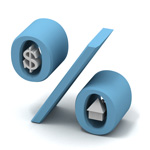Is Debt Consolidation the Best Way to Manage your Debt?
An exploration of different debt consolidation options
 Are you having a hard time keeping track of all your credit card payments? Do you feel that most of your monthly payments are just covering the interest fees, and the outstanding balance is remaining the same? Credit card statements can indeed give you the impression that your debt situation worsens every month. You think you finally killed the balance after making a large payment, but it always seems to come back at you, much like cutting the head of a dragon that keeps re-popping out its head, in pairs!
Are you having a hard time keeping track of all your credit card payments? Do you feel that most of your monthly payments are just covering the interest fees, and the outstanding balance is remaining the same? Credit card statements can indeed give you the impression that your debt situation worsens every month. You think you finally killed the balance after making a large payment, but it always seems to come back at you, much like cutting the head of a dragon that keeps re-popping out its head, in pairs!
Well, this is quite common in our time; many people are overwhelmed by debt, sometimes leading to over-indebtedness. And unless you win the lottery, there is no magic way to make all your debt disappear; you just have to start paying, and stop spending.
If you are willing to lower your debt ratio, there are efficient ways to tackle indebtedness, ways that can lower your interest costs, and can help you optimize your capital payments. A known solution is to consolidate all of your debt into one big loan and merge the different fees into one interest rate. This will simplify your finances as your multiple payments will now be only one big monthly payment (bi-weekly or weekly payments can also be applied). This approach will most probably lower your interest costs, especially if you are consolidating credit cards at +20% rate.
Debt consolidation can be very effective if done adequately, and there are different ways to go about it. Here are different types of debt consolidations:
- Consolidation programs
- Low interest credit card transfers
- Second mortgage on a property
- Loan secured on a collateral (other than real estate)
- Unsecured loan with guarantor
- Personal loan based on your credit score
Let's go over this list and identify what would be the best match for you.
Credit cards and consolidating programs
When you decide to consolidate your debt, you're essentially simplifying your finances, lowering your interest payments, and rearranging your budget. Credit cards are often the culprit, putting us in this situation because of their easy accessibility. Having multiple credit cards can give you the impression that money is readily available since the money is not taken directly from your bank account, making purchase decisions easier.
Moreover, the possibility of just reimbursing part of what we owe fits better in people's budget and mindset. Consequently, after opening several credit cards, we can end up losing track of all our purchases. If not disciplined, this is the perfect recipe to find yourself buried by debt, and paying ridiculously high interest rates.
There are organizations aware of this problem that specialize in helping individuals with credit card problems. Banks, credit unions and financial institutions are some of them, but there are also non-profit ones, which could be more trustworthy as their main mission is not to make money. Unlike banks, their goal is to save people from the vicious cycle of credit card indebtedness.
Two non-profit organizations in North America that have proven themselves are Consolidated Credit Counselling Services of Canada Inc. and Consolidated Credit in the USA, both serving clients in multiple languages (English, French and Spanish). These organizations offer a debt management program that analyzes your situation and helps you re-adjust your budget. They take away your credit card balance and set up a new repayment plan without any interest rate. They also provide counselling on how to manage your own finances, and can help you reduce your credit card balance from 30% to 50%. If managing the debt you have on your own seems to be an impossible task, seeking external help is highly recommended, especially when it is practically free (they work on voluntary donations only).
Once your new budget is established, the key to get, and stay, out of high indebtedness is to stick with your budget and avoid further spending. There is always the danger of falling into old habits and start abusing your old credit cards, as you did in the past. This could be the worst mistake after consolidating your debt! You could find yourself in a worse situation than you started with, managing new credit card balances to pay, and owing more than before. Budget and discipline are the two points you must always keep in mind.
Low interest credit card transfers
Another way to consolidate your credit card's outstanding balance is to transfer it to a very low interest rate credit card. The rates offered can be very low, ranging from 1% to 3%, or even 0%! Always keep in mind that these are for transferable balances only, not new purchases, and the rates are only offered for a limited time. It can be a very rewarding plan if done correctly, because you are cutting down your interests to almost nothing, so your payments will mainly be towards the capital. By applying your usual interest payment on the capital portion, the outstanding balance will go down quicker and you will get rid of your debt faster. However, if done wrong and not following the time given to pay the balance back, it can be devastating. Make sure to avoid traps when using the lower interest rate promotion.
What is the level of risk you represent?
There is a simple rule in the world of investment where the riskier a project is, the more rewarding it can be, but also, the greater the potential loss. In the eyes of banks and financial institutions, you, as a consumer, are a project, and the riskier you are, the higher the interest you will get. While you may represent a great source of income by paying high interest fees to them, if you end up not reimbursing then you become “bad debt” to the organization. The money they lent will be written off and it will be a loss for them. Credit cards are so accessible these days because the potential gains made by high interest rates to consumers make up for all the bad debts.
If you want to appear as a less risky candidate in the eyes of banks in order to get lower interest rates, consolidating your balance and securing it on assets such as your house, car, vehicle and/or investments, is one way to go about it. You are essentially providing guarantees in case of default. If you do not pay, the banks can reimburse themselves by repossessing the assets, so you would represent a less risky candidate. However, you might be at a stage in your life where you do not have any assets, in that case, looking into other types of organizations, other than banks, would be worth it, such as Consolidated Credit Counselling Services of Canada Inc. and Consolidated Credit in the USA.
Consolidation secured on collateral
For those who own a property, you can look into consolidating your debt at a very low cost. The idea is to merge all of your debt into one loan or line of credit, and secure it on your home's mortgage refinanced value. This would require having accumulated a certain amount of equity on you property. Rarely will financial institutions finance 100% of your real estate value (they usually ask for a down payment when first purchasing the property). If you have paid off a good amount of your mortgage then you might have room for a second mortgage, providing you with extra financing at the lowest regular rate you can find.
You can choose to go with a second regular mortgage and make periodic payments until the balance reaches zero, but you could also go with a home equity line of credit (HELC) and have it as revolving credit. The HELC is more flexible, allowing you to re-borrow an amount you already paid back, and the minimum payment needed on your end could be the equivalent of only the interest of one month, which can be very low. However, if you pay only the monthly interest, the balance will never go down and this consolidated debt will follow you forever.
A house or condominium are the most common real estate assets used when consolidating your debt, but if you do not possess a property, you can always try to secure it on another collateral such as a vehicle or investment, in order to get a lower rate. If you do not have any belongings to use as collateral then you could get a co-signer as a personal guarantor.
Finally, you can also get an unsecured loan or line of credit where the rate will be base on your credit score and your payment history. Improving your credit score would be the last element helping you obtain a lower interest rate.
The aftermath
Debt consolidation is definitely a relief, either by using consolidation programs, or by securing it on your net value. From one day to the other, your personal finance is simplified and, by benefiting of a lower interest rate, your former payments on interest fees can now help you reduce your balance faster.
However, the battle is far from over. After having all of your debt reorganized, you have to rewire your brain and change your spending habits. You have a new budget on hand, and deviating from it could be very harmful. You must reduce your risk of exposure to new debt, and stick with the minimum amount of credit cards possible, focusing on lowering your outstanding balance.
The only way to keep your head above water after consolidating is to stick with the plan and maintain the budget you build for yourself. By doing so, you will be the one managing your finances and not the other way around, and this is the first step to financial freedom.




